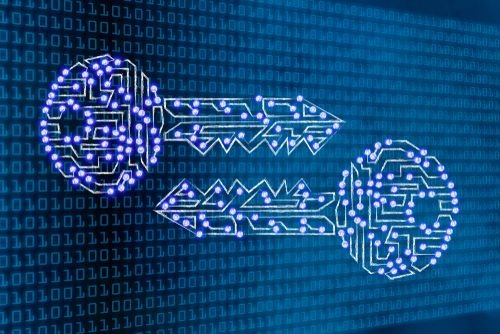
Artificial intelligence (AI) is rapidly transforming various industries, and warfare is no exception. The development of AI-powered autonomous weapons—often called “killer robots”—has sparked significant debate among military strategists, ethicists, policymakers, and the general public. These autonomous weapons are systems that can identify, target, and eliminate threats without direct human intervention. Proponents argue that they could enhance military efficiency and reduce human casualties. However, many are concerned about the ethical implications of delegating life-and-death decisions to machines. This article explores the ethical issues surrounding the use of AI in warfare, focusing on the implications of autonomous weapons.
1. What Are Autonomous Weapons?
Autonomous weapons, also known as lethal autonomous weapons systems (LAWS), are military systems that can operate independently of human control once they are activated. They use AI algorithms, machine learning, sensors, and advanced robotics to identify targets, make decisions, and engage in combat without direct human oversight.
Examples of autonomous weapons include drones that can select and attack targets without a human operator, ground-based robots capable of conducting combat missions, and missile systems that can change course in real-time based on AI-driven decision-making processes.
Unlike traditional weapons, which require human operators to make targeting and engagement decisions, autonomous weapons can make these decisions on their own. This capability raises several ethical concerns, primarily because it shifts the responsibility for critical decisions from humans to machines.
2. Potential Benefits of Autonomous Weapons
Before delving into the ethical concerns, it’s important to recognize that proponents of autonomous weapons argue they could provide several benefits:
- Reduced Human Casualties: One of the most commonly cited advantages is that autonomous weapons could reduce the risk to human soldiers by taking on dangerous tasks, such as bomb disposal, reconnaissance in hostile areas, or frontline combat operations.
- Increased Precision and Efficiency: AI algorithms can process vast amounts of data quickly, potentially allowing autonomous weapons to identify and target threats more accurately than human operators. This increased precision could reduce collateral damage and civilian casualties.
- Faster Decision-Making: In the fast-paced environment of modern warfare, quick decision-making is crucial. Autonomous weapons can make split-second decisions without being hampered by fatigue, fear, or emotional responses, potentially providing a tactical advantage in high-stress situations.
- Cost-Effectiveness: Deploying AI-powered systems could reduce the need for large numbers of human soldiers, lowering the costs associated with training, equipment, and long-term care for veterans.
Despite these potential benefits, the ethical implications of using AI in warfare—particularly in fully autonomous weapons—are significant and have sparked widespread debate.
3. Ethical Concerns Surrounding Autonomous Weapons
a. Lack of Human Judgment
One of the central ethical concerns about autonomous weapons is their lack of human judgment. War is inherently a complex human activity, filled with ambiguity, uncertainty, and moral dilemmas. Human soldiers are capable of understanding context, considering ethical norms, and exercising restraint based on compassion or mercy. Machines, on the other hand, lack these capabilities. They operate based on pre-programmed rules and algorithms, which may not account for the nuances and moral complexities of real-world scenarios.
For example, an autonomous weapon might identify a target based solely on algorithmic patterns, without understanding the broader context—such as distinguishing between a combatant and a civilian who may be holding a weapon for self-defense. The lack of human judgment could lead to tragic mistakes and unintended consequences.
b. Accountability and Responsibility
Another critical ethical issue concerns accountability and responsibility for actions taken by autonomous weapons. In traditional warfare, human soldiers, commanders, and political leaders are held accountable for decisions that result in harm or violations of international law. With autonomous weapons, it is unclear who would be responsible if something goes wrong. Would it be the military commander who deployed the weapon, the programmer who developed the algorithm, the manufacturer who built it, or the machine itself?
This lack of clear accountability creates a “responsibility gap” that complicates legal and ethical assessments. Holding a machine accountable is not feasible since it lacks intent, consciousness, or the capacity to understand moral or legal principles. The absence of accountability mechanisms could lead to a dangerous situation where war crimes or violations of international humanitarian law go unpunished.
c. Violation of International Humanitarian Law
International humanitarian law (IHL), also known as the laws of war, sets rules and principles to limit the effects of armed conflict. IHL mandates that combatants distinguish between military targets and civilians, use proportional force, and avoid unnecessary suffering. Autonomous weapons could struggle to adhere to these principles, given their reliance on algorithms and sensors rather than human reasoning and judgment.
For example, AI algorithms might not always correctly interpret ambiguous situations or effectively distinguish between combatants and non-combatants. This could lead to violations of the principle of distinction, one of the core tenets of IHL. Moreover, autonomous weapons might fail to assess proportionality accurately, as they lack the ability to weigh the military advantage against potential civilian harm in a morally relevant way.
d. Risk of Escalation and Lowering the Threshold for War
Autonomous weapons could potentially lower the threshold for entering armed conflict. If states or non-state actors perceive that autonomous weapons reduce the risk of human casualties on their side, they may be more willing to engage in conflict. This perception could lead to more frequent military engagements and escalations, making war more common rather than a last resort.
Additionally, the deployment of autonomous weapons could create an arms race among nations, as they rush to develop and deploy the most advanced AI technologies for warfare. This arms race could destabilize global security, increase tensions, and make conflicts more likely.
e. The Potential for Hacking and Misuse
AI-based systems, including autonomous weapons, are vulnerable to hacking and cyber-attacks. If an autonomous weapon is hacked, it could be used against its creators or other unintended targets. Malicious actors could exploit vulnerabilities in the AI system, leading to catastrophic consequences.
Moreover, there is a risk of misuse by rogue states, terrorist organizations, or criminal groups that gain access to these technologies. Autonomous weapons in the wrong hands could be used for mass destruction, targeted assassinations, or other nefarious purposes, leading to significant global security risks.
4. The Role of Human Control
Given these ethical concerns, many experts argue that human control should remain a fundamental principle in the use of AI in warfare. There is a growing consensus around the concept of “meaningful human control,” which means that human operators should always have the ability to supervise, intervene, or deactivate autonomous weapons.
Maintaining human control ensures that critical decisions, especially those involving life and death, are made by humans who can apply moral reasoning, contextual understanding, and compassion. Several international organizations, including the United Nations, have called for a ban on fully autonomous weapons and emphasized the importance of keeping humans “in the loop” when it comes to the use of force.
5. International Efforts to Regulate Autonomous Weapons
The international community is actively discussing how to regulate the use of AI in warfare, especially autonomous weapons. Several initiatives and proposals have emerged to address the ethical and legal challenges:
- United Nations Convention on Certain Conventional Weapons (CCW): The UN CCW has been a key forum for discussions on autonomous weapons. Since 2013, member states have held several meetings to discuss the implications of these weapons and consider the possibility of new regulations or a ban. While some countries support a ban, others argue that regulation, rather than prohibition, is more realistic.
- The Campaign to Stop Killer Robots: This global coalition of non-governmental organizations (NGOs) advocates for a preemptive ban on fully autonomous weapons. The campaign argues that allowing machines to make life-and-death decisions would undermine human dignity and violate international humanitarian law.
- National Policies and Regulations: Some countries have started to develop their own policies regarding the use of AI in warfare. For instance, the United States Department of Defense has issued guidelines emphasizing that humans should remain in control of all lethal force decisions. Similarly, several European countries have called for an international ban on fully autonomous weapons.
6. The Moral Dilemma of Delegating Lethal Decisions to Machines
The ethical debate around AI in warfare fundamentally boils down to a moral dilemma: Should machines be allowed to make decisions about life and death?
On one hand, proponents argue that autonomous weapons could save lives by reducing human casualties and increasing precision. They contend that AI technology could reduce the fog of war and minimize collateral damage, potentially making conflicts less destructive overall.
On the other hand, opponents argue that delegating lethal decisions to machines is inherently wrong. They emphasize that war is a deeply human activity that requires human judgment, empathy, and moral reasoning. Allowing machines to make such decisions could erode the moral fabric of society, desensitize us to the horrors of war, and create a dangerous precedent for the future.
7. Possible Paths Forward
The ethical implications of using AI in warfare, particularly autonomous weapons, demand careful consideration and proactive action. Here are some potential paths forward:
- Establishing Clear International Norms: The international community needs to establish clear norms and standards governing the development and use of autonomous weapons. This could include agreements on maintaining human control, limiting the types of weapons that can be used autonomously, and ensuring compliance with international humanitarian law.
- Promoting Transparency and Accountability: Governments and military organizations should promote transparency in developing and deploying AI in warfare. Clear accountability mechanisms should be established to address any violations of ethical or legal standards. This might involve setting up international oversight bodies or creating transparent reporting mechanisms.
- Encouraging Research on Ethical AI: More research is needed to understand how AI can be designed and deployed ethically in military settings. This includes developing AI systems that align with human values, testing their safety and reliability, and exploring ways to embed ethical considerations into AI algorithms and decision-making processes.
- Engaging Civil Society and the Public: The ethical implications of autonomous weapons are not just a military or governmental concern; they affect all of humanity. Governments and international organizations should engage with civil society, including ethicists, human rights advocates, and the general public, to ensure that a wide range of perspectives are considered in policymaking.
8. Conclusion
The rise of AI in warfare, particularly the development of autonomous weapons, presents a profound ethical challenge. While there are potential benefits, such as reduced human casualties and increased efficiency, the risks and moral concerns are significant. These include a lack of human judgment, accountability issues, violations of international law, escalation of conflicts, and the potential for hacking and misuse.
As AI technology continues to advance, it is crucial for the international community to grapple with these ethical implications and establish clear guidelines to ensure that the use of AI in warfare aligns with human values, respects international law, and preserves global peace and security. The debate over autonomous weapons is not just about technology; it is about the kind of world we want to live in and the moral principles we choose to uphold.







